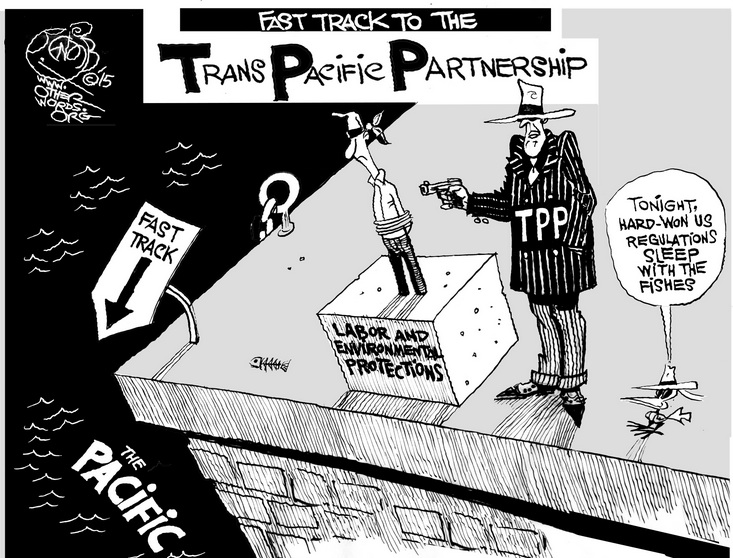Dani Rodrik writes: With global trade negotiations deadlocked for years, regional agreements – long a dormant route to trade liberalization – are back with a vengeance. The United States is at the center of two mega-deals that could shape the future path of world trade. It has just taken a step back.
Trade agreements have long stopped being the province of experts and technocrats. So it is not surprising that both initiatives have generated significant and heated public discussion. The perspectives of proponents and opponents are so polarized that it is hard not to be utterly confused about the likely consequences.
On the economic front, the trade agreements’ defenders tend to talk with both sides of their mouth. Reducing trade barriers is said to promote economic efficiency and specialization; but it is also supposed to increase exports and create jobs by increasing access to trade partners’ markets. The first of these is the conventional comparative-advantage argument for trade liberalization; the second is a mercantilist argument.
From the standpoint of comparative advantage, gains from trade arise from imports; exports are what a country has to give up in order to afford them. These gains accrue to all countries, as long as trade expands in a balanced fashion. Trade agreements reallocate them across industries.
In the mercantilist worldview, by contrast, exports are good and imports are bad.
Either argument for trade agreements is thus inconsistent with their advocates’ key claim that such deals will simultaneously create jobs and be mutually beneficial. Strangely, supporters of the TPP and TTIP simultaneously rely on both arguments.
On the political front, proponents argue that TPP and TTIP will enshrine good, liberal rules for world trade. Lower barriers and greater transparency in regulation are generally good things. But here, too, the reality is much more complex.
For the US, a great attraction of the TPP is that it will enforce tighter intellectual-property rules on other countries.
In the TTIP, the reduction of so-called non-tariff barriers to trade between the US and Europe will almost certainly restrict the space for domestic regulatory action.Perhaps most worrisome are the provisions establish a separate judicial track, outside a country’s own legal system, that allows firms to sue governments for apparent violations under trade treaties. Proponents defend ISDS by saying that it will not have much consequence for countries, such as the US, where there is good rule of law, and that it will promote investment in countries, such as Vietnam, where there is not.
One of the most important, and equally ambiguous, objectives of these agreements relates to a subject that will not make any appearance in the texts: China. Both the US and Europe would like China to play the trade game by their rules. Negotiating these rules without China’s participation can be viewed as part of a strategy aimed at eventually coaxing China into a liberal global system.
The secrecy of the negotations are a real problem. It does make sense to subject the final text to an up-or-down legislative vote without allowing amendments. But this can be done while making draft texts public. The time for secrecy is past, if it ever existed.

